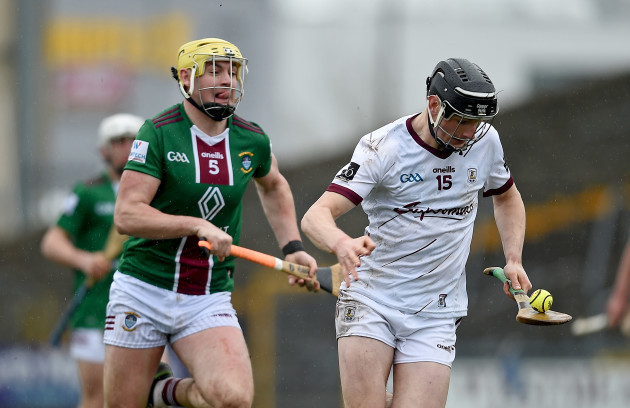THE DECISION BY the Kilkenny GAA referees to suspend all services last weekend has been warmly received by Henry Shefflin.
The ten-time All-Ireland winner was speaking at the launch of the Dillon Quirke Foundation in Clonoulty-Rossmore, and wholeheartedly agreed with the collective stance after one of the referee’s group was sent a threatening and abusive letter.
Talking about refereeing in general, Shefflin explained, “We seen what’s going on in Kilkenny at the moment, it’s just absolutely disgraceful what happened there last week.
“So it’s great to see the Kilkenny referees supporting each other and I think we all have a part to play in the respect we show them.”
While former Tipperary hurler Fergal Horgan has withdrawn his own services at national level this summer in protest at not being awarded the games he would like, Shefflin believes that the standard of refereeing in the hurling championships has been pleasing so far.
“We saw in the Munster final last year, what John Keenan did, he very much added to the game and I think Colm Lyons added to the game last Saturday night. That’s what we need, we need those top quality referees,” he said.
Shefflin revealed that over the years he had received a couple of letters himself, “…but some of the writing would be illegible in reality so it’s quickly forgotten about!”
The latest cause du jour has become a live issue in hurling when Shefflin included Liam Collins in his panel for Sunday’s drawn Leinster round-robin game against his native Kilkenny.
This prevented the Cappataggle youngster the opportunity to play in Galway U20s Leinster loss to Offaly on Saturday, which left Shefflin frustrated at the seven-day rule that denies young players from serving two masters.
“It was a knockout game,” said Shefflin of the U20 fixture.
“Would Liam Collins have been able to go to Tullamore on Saturday and play a match? Yes. Why not? He played six minutes with us so the opportunity should’ve been there for him to have that.
“It was taken out of our hands and we obviously felt that we’d like Liam to be on our bench. That was the call we made. To be fair to Brian Hanley (U20 manager) and his management team, they were totally understanding about that.
“Seán O’Hanlon and Gavin Lee are two other players and they travelled with the U20s on Saturday but I’m sure they were very disappointed knowing Liam Collins was sitting there watching the game when he could’ve had an impact on that Offaly game.
“He played six or seven minutes for us on the Sunday and what under-20-year-old after a disappointing loss to Offaly would have any problem getting up on a Sunday morning, travelling to Nowlan Park, going to a big game with a big crowd, and being a substitute and maybe coming on for 10 or 15 minutes? I can’t fathom how that would have an effect on a player. I think it would be beneficial to him if anything.”
Like a host of senior managers, Shefflin insists the time has come to do away with the rule or alter it.
“I don’t see the logic in it. From listening to Ben O’Connor, Conor Laverty all last week who spoke very eloquently on it, and [it's] to be fair to those chaps,” he stated.
“And then it’s down to a bit of maturity on behalf of the management teams that they get on, the relationship between them, that we understand where it is.
“If Liam Collins had woke up Sunday morning being very sore, stiff, and got a lot of belts, and he’s on our bench, so be it. He can stay on the bench and not come in in the game. We can call that. We named 26 players, we can only bring on five so there’s always six subs who don’t get an opportunity to play.
“If you happen to have one of your U20s there who you feel you don’t need to use, it plays a major impact on your own team for the following day.”
Supporters of the rule will insist that the seven-day rule is a measure against burn-out and players playing across too many teams.
But as Shefllin explains, that scenario might be far more prevalent when the pitches are heavy and club, county and college are frequently calling on the services of young players.
“The burnout is the beginning of the year. The burnout is not now. I think we all understand and it’s down to the management teams to really understand the player.
“That’s something myself and Brian Hanley will do and I’m sure nearly every other management team between U20 and senior get that and understand that. That’s the big thing for me.”
Get instant updates on the Allianz Football and Hurling Leagues on The42 app. Brought to you by Allianz Insurance, proud sponsors of the Allianz Leagues for over 30 years.


